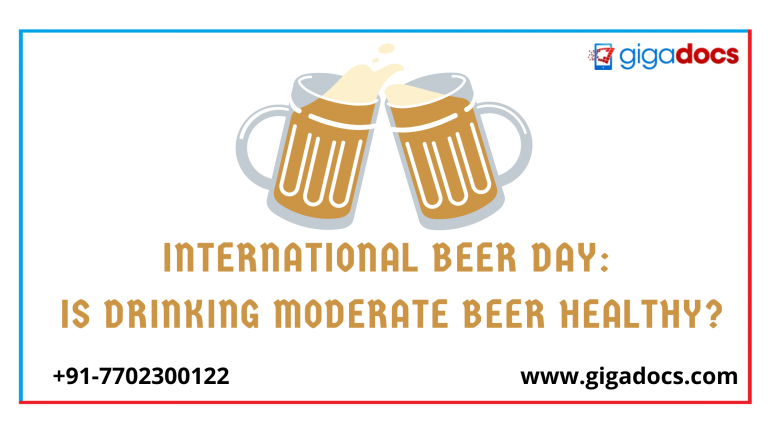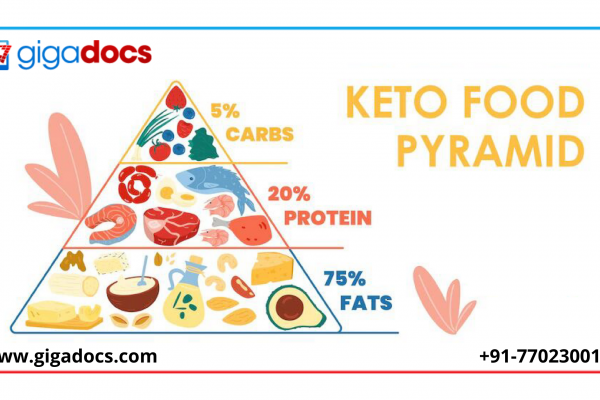Beer is the third most popular beverage after water and tea. It is one of the world’s oldest and most well-known alcoholic drinks.
Beer is brewed from malted barley, rice, oats, wheat, maize, among other cereal grains. It has a low alcohol concentration when compared to other strong drinks. It only contains 4 to 6% alcohol by volume (ABV) however, which varies with different beer brands.
Nutritional Value of Beer
A 340 mL standard beer has the following ingredients:
| Calories | Protein | Fat | Carbs | Riboflavin | Choline | Magnesium | Phosphorus | Selenium |
| 153 | 1.6 gms | 0gms | 13 gms | 7% of DV | 7% of DV | 5% of DV | 4% of DV | 4% of DV |
Health Benefits of Beer
Is it possible to keep healthy and fit by drinking a couple of glasses of beer per day? On this International Beer Day, we’ve put up a list of beer’s health advantages and beer nutrition for you. Please keep in mind it is not an encouragement to drink, especially if you are a teetotaler or have a medical condition.
Beer drinkers have a longer life expectancy.
Moderate alcohol consumption is good for your health, and beer is an excellent choice because it involves less alcohol and has a higher volume than wine or spirits. According to multiple independent studies, moderate drinkers live much longer and live a better life than alcoholics or teetotalers.
Beer can promote a healthier heart.
According to studies, moderate beer consumption may reduce your risk of heart attacks, strokes, and heart disease compared to non-drinkers. Research comparing the health advantages of wine, beer, and spirits has found that moderate intake of any alcoholic beverage is linked to a lower risk of cardiovascular disease.
Beer can help you avoid kidney stones.
Beer consumption may lower your chances of forming kidney stones. According to researches, men and women who reported drinking a moderate amount of beer had a 41% lower risk of developing a stone. Beer with a lot of hops is high in phytochemicals that are good for your kidneys.
Beer is good for your bones.
Beer’s high silicon content may aid in the development of stronger bones. Dietary silicon in the soluble form of orthosilicic acid (OSA) may aid bone and connective tissue health besides reducing the risk of osteoporosis.
Beer helps mitigate type 2 diabetes risk.
People who drink moderate amounts of beer appear to have a lower risk of type 2 diabetes. Type 2 diabetics who drink moderate amounts of alcohol are more likely to have a decreased risk of cardiovascular disease than non-drinkers.
Beer can help you relax.
Two glasses of beer a day, according to research, can help to minimize work-related stress and anxiety. However, relying on alcohol to cope with stress regularly may cause more harm than benefit. While alcohol may aid with stress relief in the short term, it can also add to feelings of despair and anxiety, making it more challenging to manage stress.
Beer helps to lessen harmful cholesterol levels.
Beer’s soluble fiber can help lower LDL (low-density lipoprotein) or “bad” cholesterol levels. When you drink beer in a moderate amount, it increases your soluble fiber consumption that provides for several health benefits, including helping to maintain healthy blood sugar and cholesterol levels. On the other hand, alcohol might reduce the body’s ability to burn stored fat by interfering with its ability to absorb vitamins and minerals. According to some research, drinking just one beer per day can increase good cholesterol i.e the HDL (high-density lipoprotein) levels by up to four percent.
Beer is healthier than other alcoholic beverages.
There’s a lot of talk about how many antioxidants are in wine, but beer has almost as many. Beer also has more protein and vitamin B than wine. It is also high in iron, calcium, phosphates, and even fiber.
Beer may aid memory enhancement.
Xanthohumol, a hidden component in beer hops, can assist boost cognitive function. It’s a flavonoid that helps to slow down memory deterioration. The chemical may be able to shield brain cells from the oxidative damage that causes dementia.
| International Beer Day International Beer Day (IBD) was started in 2007 in Santa Cruz, California, and takes place on the first Friday of August every year. This year it will be celebrated on the 6th. of August. International Beer Day has expanded from a modest local festival in the western United States to a global celebration covering 207 locations, 80 nations, and six continents since its origin. |
Who should stay away from beer?
While the data suggests that beer has certain health benefits, it is essential to remember that it does contain alcohol. As a result, those with specific medical issues should avoid drinking beer.
You shouldn’t have Beer if you have
- Gout
- Insomnia.
- Liver problems.
- Stomach ulcer or persistent heartburn.
Besides, if you’re pregnant or breastfeeding, you shouldn’t drink beer. Excess drinking in one sitting has repercussions which may range from flushing, confusion, difficulty controlling emotions, blackouts, loss of coordination, seizures, drowsiness, difficulties breathing, hypothermia, low blood sugar, vomiting, diarrhea, bleeding, and irregular heartbeat.
Side Effects of Beer and Promoting Wellness with Gigadocs
Long-term alcohol consumption can lead to alcoholism and various dangerous side effects, including malnutrition, memory loss, mental issues, heart trouble, liver failure, pancreas swelling (inflammation), digestive system malignancies, and more.
Physicians have primarily refrained from endorsing the benefits of moderate alcohol intake for fear that heavy drinkers will misinterpret any message as a license to binge. Consult a general physicist on the Gigadocs app about your medical history and personal drinking patterns to avoid alcohol dependence and its harmful side effects.
Gigadocs- your one-stop solution for all your healthcare needs, book specialist appointments, store your vitals and medical history and discuss them with doctors live on your teleconsultation. Our patrons can also collect points on the Gigadocs app and redeem them on their digital consultation. Download the Gigadocs E-Healthcare app from-
- IOS App – apple.co/2W2iG4V
- Android App – bit.ly/33AQoRC
To know more and schedule a Virtual Consultation demo, e-mail us at info@gigadocs.com




